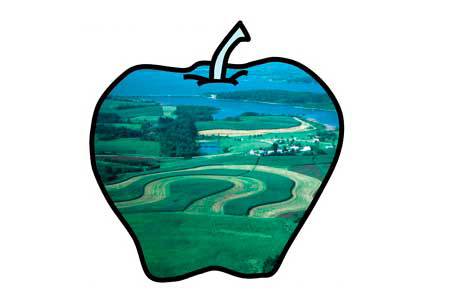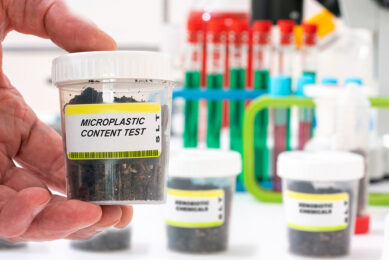Managing phosphorus run-off & soil changes

A more comprehensive and consistent system for modeling phosphorus loss is now available, thanks to work by scientists at the US Department of Agriculture (USDA).
This research, led by Agricultural Research Service (ARS) scientist Peter Vadas, supports the USDA priority of promoting international food security. ARS is USDA’s chief intramural scientific research agency
The Phosphorus Index was originally a simple management tool developed to gauge the risk of phosphorus losses from agricultural fields. The original index has since been modified by individual states to incorporate local variations in soils, climate, management, and water quality goals. This resulted in widely different state-by-state phosphorus indices that were sometimes defined more by political boundaries than by watersheds or other regional variations.
To reduce these state-by-state discrepancies, Vadas and colleagues developed the Annual Phosphorus Loss Estimator (APLE), a user-friendly spreadsheet program that predicts field-scale phosphorus loss in runoff for a whole year. The revamped program can also be used in many different states to quantify field-scale phosphorus loss and soil phosphorus changes over 10 years for a given set of runoff, erosion, and management conditions.
The team showed that APLE could reliably quantify phosphorus losses in runoff for many different situations and could produce more reliable estimates than some existing phosphorus indexes. Vadas also has been adapting APLE to simulate phosphorus loss from pastures grazed by beef and dairy cattle, and from barnyards and exercise lots on cattle farms.
With these improvements, APLE can be used to develop whole-farm estimates of phosphorus losses and the most effective strategies for reducing phosphorus losses from cattle farms. These practices could include barnyard improvements for capturing discharge, soil conservation practices that reduce erosion, or manure application practices that reduce exposure to runoff water.
Join 26,000+ subscribers
Subscribe to our newsletter to stay updated about all the need-to-know content in the feed sector, three times a week. Beheer
Beheer









 WP Admin
WP Admin  Bewerk bericht
Bewerk bericht